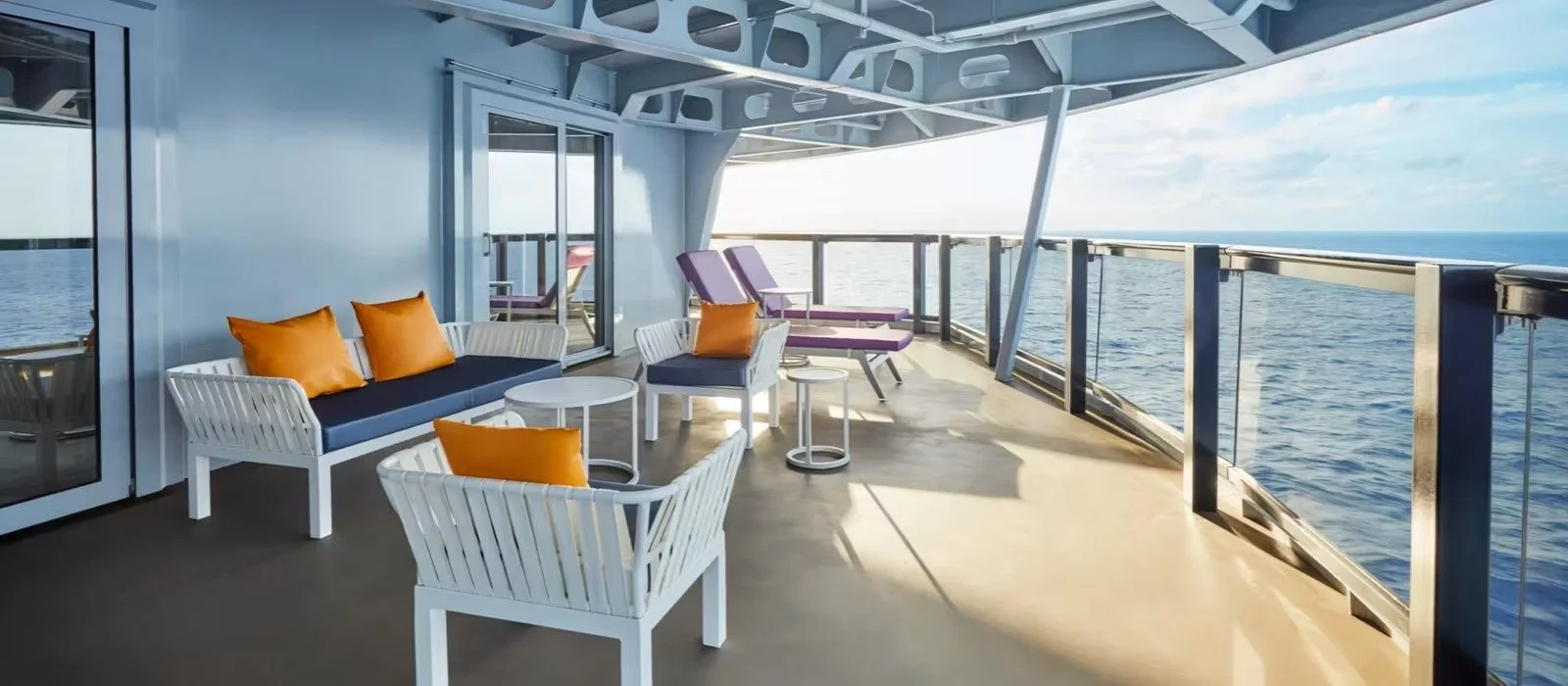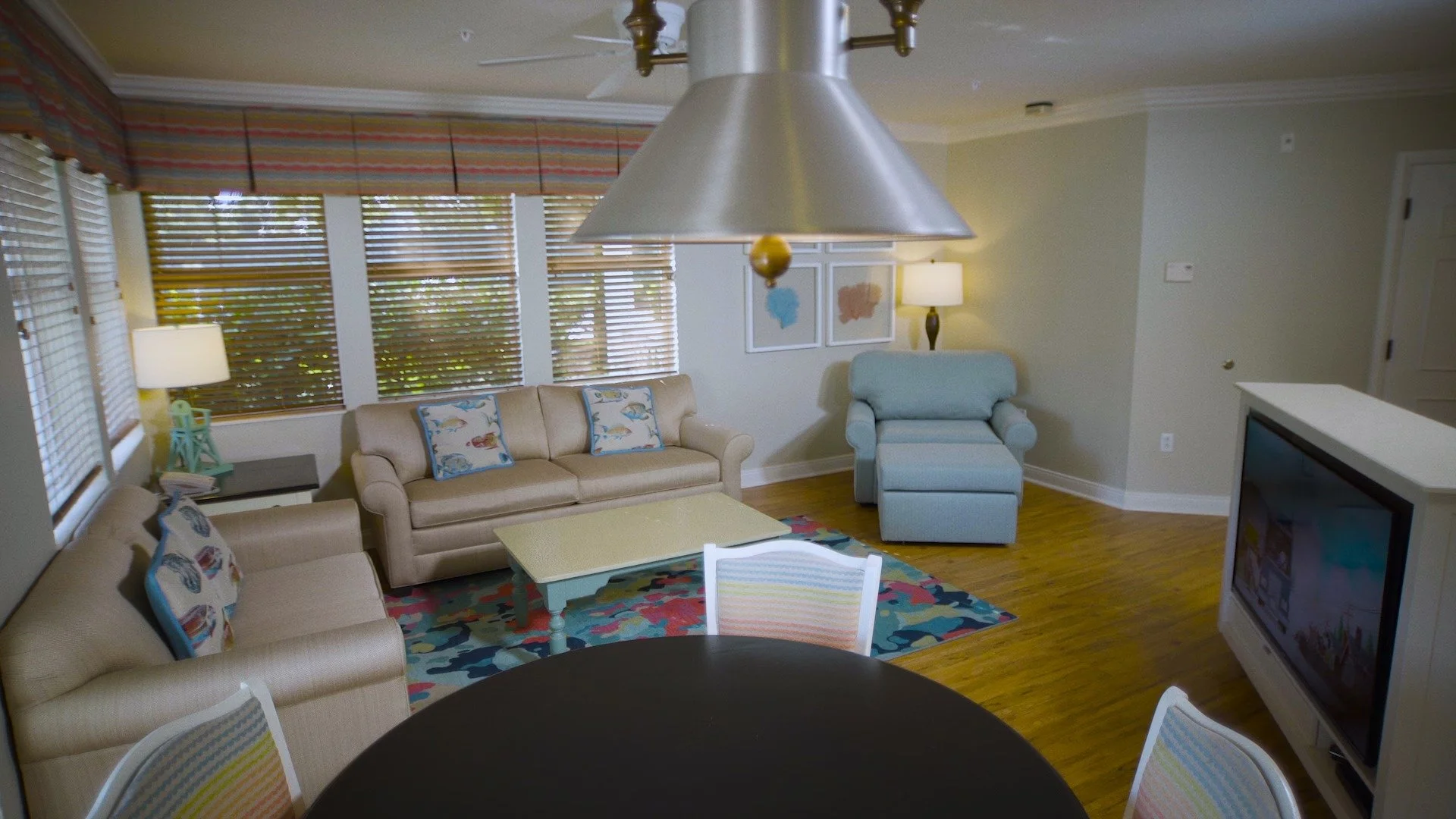The Top 10 Challenges Holding Back New Travel Agents (And How to Overcome Them)
You know that feeling when you're working harder than ever, but your travel business just isn't growing like you want it to? You're not alone. So many travel agents (new and seasoned) hit a ceiling that feels impossible to break through. The good news? It's usually not about working harder, it's about working smarter and getting out of your own way!
After talking to hundreds of successful travel agents and digging through what's really stopping people from hitting their goals, I've found the same patterns keep showing up. These aren't small issues, either. They're the big things that can keep you stuck at the same income level for years if you don't address them. Let's talk about what's really holding you back and, more importantly, how to fix it!
Join us here at MainStreet Travel, we offer a Free Membership and a Travel Plus Membership for only $99! No monthly fees, annual dues, and no minimum booking fees! Start earning money by booking your friends and family’s trips!
1. Trying to Be Everything to Everyone (No Niche, No Expertise)
Here's the truth bomb: if you're selling everything from budget cruises to luxury safaris to Disney vacations all at once, you're making things way harder than they need to be. When you try to be a generalist in today's market, you're competing with every online booking site and every other agent out there.
Think about it this way. When you need heart surgery, do you go to a general doctor or a heart specialist? Your clients are thinking the same way. They want someone who knows their stuff inside and out.
The agents making serious money right now? They've picked a lane. Maybe it's luxury travel for couples, destination weddings in Mexico, adventure trips for millennials, or all-inclusive resorts. Whatever it is, they own it. They know the best hotels, the hidden gems, which suppliers treat their clients like royalty. That expertise is what people are willing to pay for.
When you niche down, everything gets easier. Your marketing gets easier because you know exactly who you're talking to. Your learning gets easier because you're not trying to master the entire world. And your sales get easier because you become the go-to person for that specific thing.
2. Stuck in the Friend and Family Zone
Look, booking trips for your mom and your college roommate is great when you're starting out. But if that's still your main client base two years in, we've got a problem!
The friend and family zone is comfortable. These people already trust you. But here's the reality—your network is limited, and so is your income potential if that's all you're relying on. Plus, let's be honest, sometimes family and friends expect discounts or freebies, which doesn't exactly help you grow a profitable business.
Breaking out means getting uncomfortable. It means putting yourself out there on social media. It means networking with strangers. It means actually marketing your business consistently, not just when you remember to post something. The most successful agents treat their first circle as a launching pad, not a permanent client base.
You've got to fish in bigger ponds. Join local business groups. Attend networking events. Create partnerships with wedding planners, photographers, or anyone else who works with your ideal clients. Your next level of success is sitting with people you haven't met yet.
3. Ghosting Your Marketing (Or Not Marketing At All)
Let's talk about one of the biggest mistakes I see—what I call the "ghosting syndrome." You get all excited, post on Instagram for two weeks straight, get crickets, and then disappear for three months. Then you wonder why no one's booking with you.
Here's the deal: marketing isn't a one-and-done thing. It's not even a one-month thing. Successful travel agents show up consistently, whether they feel like it or not. They're posting on social media, sending email newsletters, sharing travel tips, showing behind-the-scenes of their trips. They're staying top of mind so when someone's ready to book, guess who they think of first?
And here's what a lot of agents get wrong—they think marketing is just posting pretty pictures of beaches. Marketing is about showing your expertise, building trust, and making it crystal clear why someone should book with you instead of going to Expedia. It's about telling your story, sharing client experiences, educating people about destinations.
You don't need to be on every platform doing everything all the time. Pick one or two channels where your ideal clients hang out and commit to showing up there consistently. Instagram and Facebook work great for most travel niches. Maybe throw in some email marketing to stay in touch with past clients.
The agents making six and seven figures? They have a content calendar. They have a system. They're not winging it every week trying to figure out what to post.
4. Undervaluing Your Time
This one's huge. If you're still giving away hours of research, planning, and expertise for free and only hoping to make a commission at the end, you're leaving thousands of dollars on the table.
Over half of successful travel agents now charge planning fees, and that number keeps growing. Why? Because they realized their time is valuable. Your knowledge is valuable. The fact that you can save someone 20 hours of research and headaches? That's definitely valuable.
Planning fees typically range from $150 for simple bookings to several thousand dollars for complex itineraries or group travel. Think of it this way—would you expect your lawyer to research your case for free and only get paid if you win? Of course not.
Charging fees also solves another problem—it weeds out the tire kickers. The people who are serious about working with you won't blink at a reasonable planning fee. The ones who just want to pick your brain and then book on Expedia? They'll self-select out, which saves you tons of time!
The key is communicating your value upfront. List out everything you do—the research, the reading of fine print, the triple-checking details, the 24/7 support when they're traveling, the relationships with suppliers that get them perks they can't get online. When you lay it all out, a $250 planning fee suddenly seems like a no-brainer!
5. Flying by the Seat of Your Pants (No Systems or Processes)
Want to know what separates a struggling travel agent from a thriving one? Systems. The agents who are drowning are trying to remember everything in their heads, reinventing the wheel with every client, and spending hours on tasks that could be automated.
You need systems for everything. A system for how you onboard new clients. A system for how you research and present options. Templates for your proposals and itineraries. Automated emails that go out at specific times. Checklists so you never forget to triple-check those flight times or remind clients about passport requirements.
Here's what happens when you don't have systems—you make mistakes. You forget to follow up with a lead. You miss a payment deadline. You double-book your time. And mistakes cost you money and reputation.
The good news? You don't have to figure this all out yourself. Invest in good tools. A solid CRM system can automate so much of your workflow. Booking software, itinerary builders, automated email sequences—these aren't luxuries anymore, they're necessities if you want to scale.
Think about it—if you have templates and systems, you can serve more clients in less time. That's how you grow without burning out.
6. Afraid to Invest in Your Business
I hear this all the time: "I'll invest in better tools/training/marketing once I'm making more money." But here's the catch-22—you need those investments to make more money.
The agents stuck at the same level year after year? They're usually the ones afraid to spend money on their business. They're using free tools that take three times longer. They're not investing in education to learn new destinations or strategies. They're trying to DIY their website and it looks like it's from 2005.
Meanwhile, the agents crushing it are investing in themselves constantly. They're taking FAM trips to become experts on destinations. They're paying for that premium CRM that saves them 10 hours a week. They're hiring a social media manager or a VA to handle admin tasks so they can focus on selling.
Yes, it's scary to spend money when you're not rolling in cash yet. But think of it as planting seeds. You can't expect a harvest if you never plant anything. Start small if you need to, but start investing in your business growth!
7. Working IN Your Business Instead of ON Your Business
This is where a lot of agents get stuck. You're so busy handling bookings, answering emails, and putting out fires that you never have time to actually work on growing your business.
You can't scale if you're the one doing everything. The six and seven-figure agents? They've learned to delegate. They've built teams or outsourced tasks that don't directly generate revenue.
Maybe you hire a virtual assistant to handle your inbox and calendar. Maybe you bring on another agent to handle certain types of bookings. Maybe you outsource your social media or bookkeeping. Whatever it is, you need to free up your time to focus on the things only you can do—building relationships, closing big deals, creating strategy.
This requires a shift in thinking. You're not just a travel agent anymore. You're a business owner. Business owners think about growth, systems, and scaling. They don't spend their days stuck in the minutiae!
8. Letting Imposter Syndrome Win
Let's get real for a second. How many times have you hesitated to reach out to a potential client because you didn't feel "expert enough" yet? How often have you downplayed your knowledge or undersold your services because you didn't feel confident?
Imposter syndrome is real, and it's holding back more agents than almost anything else on this list. You see other agents posting about their amazing trips and think "I'm not at that level yet." You compare your beginning to someone else's middle and feel like a fraud.
Here's what you need to hear: You know way more than your clients do. Even if you haven't personally been to every destination you book, you have access to resources and supplier relationships they don't have. You're not an imposter—you're a professional with valuable skills.
Confidence isn't about knowing everything. It's about knowing you can figure things out, that you have the resources and support to find answers, and that you're committed to delivering great service. That's what clients are buying—not perfection, but expertise and dedication.
The most successful agents project confidence even when they're learning. They position themselves as experts in their niche (because they are), and they're not afraid to say "I don't know, but I'll find out" when something's outside their wheelhouse.
9. Treating Every Client the Same (No Boundaries or Client Vetting)
Not all clients are created equal, and trying to serve everyone the same way is exhausting and unprofitable. If you're spending hours on a $500 booking and giving that client the same white-glove treatment as someone booking a $20,000 honeymoon, you're doing it wrong.
You need boundaries. You need to know which clients are worth your time and which ones will drain your energy for minimal return. High-maintenance clients who haggle over every dollar, constantly change their minds, or expect you to be available 24/7 for a budget booking? Those are the ones keeping you from leveling up.
Successful agents qualify their leads. They have discovery calls or intake forms that help them figure out if someone's a good fit. If someone's not willing to pay your planning fee or isn't booking the types of trips you specialize in, it's okay to refer them to someone else.
It feels counterintuitive when you're trying to grow, but saying no to the wrong clients makes room for the right ones. The clients who value your expertise, respect your time, and are willing to invest in great travel experiences—those are your people.
Set clear expectations from the start about your availability, your process, and what clients can expect. Have a contract that protects you. And don't be afraid to fire clients who cross boundaries or become abusive. Your mental health and your business are worth protecting.
10. Giving Up Too Soon
This might be the most important one. The number one reason travel agents fail? They quit before they give their business a real chance to take off.
Building a travel business takes time. Most successful agents will tell you their first year was rough. They had way more nos than yeses. They questioned whether they made the right choice. But they kept going.
The travel industry isn't a get-rich-quick scheme. It's not like you hang your shingle and clients come flooding in. It takes time to build trust, to get referrals, to establish yourself as an expert. Most agents need at least a year, sometimes two, before they're really hitting their stride.
The ones who make it? They stay consistent even when it's hard. They keep marketing even when no one's responding right away. They keep learning even when it feels overwhelming. They keep showing up even when they're not seeing results yet.
Think of it like planting a garden. You don't plant seeds one day and have vegetables the next. You water, you weed, you wait. And then suddenly, things start growing. Your travel business is the same way.
If you're six months in and feeling discouraged because you're not at six figures yet, that's normal. Give yourself grace. Celebrate the small wins. And keep going!
Frequently Asked Questions
How long does it take to become a successful travel agent?
Most successful travel agents say it takes about 1-2 years to really hit their stride and build a solid client base. Your first year is typically about learning, building systems, and establishing your brand. Don't expect overnight success—treat it as a long-term business investment.
Do I need to travel a lot to be a successful travel agent?
No, but it helps. Many successful agents specialize in destinations they know well, but you don't need to have been everywhere. What matters more is your research skills, supplier relationships, and ability to match clients with the right experiences. FAM trips and supplier training can fill knowledge gaps.
How much should I charge for planning fees?
Planning fees typically range from $150 for simple bookings (like all-inclusive resorts or cruises) to $250-$500+ for complex custom itineraries, and even higher for group travel or luxury trips. Over half of U.S. travel agents now charge planning fees, so don't be afraid to value your time and expertise.
What's the best way to find clients beyond friends and family?
Focus on consistent marketing through social media and email, network in your local community, partner with complementary businesses (wedding planners, event coordinators), join business groups, attend industry events, and create valuable content that positions you as an expert. Building an online presence takes time but creates a steady stream of leads.
Should I use a host agency or go independent?
For most new agents, starting with a host agency makes sense. They provide training, supplier relationships, booking tools, support, and credibility while you're building your business. You can always go independent later once you're established and understand the business side.
How do I compete with online booking sites?
You're not competing on price—you're competing on value and expertise. Emphasize personalization, your insider knowledge, the perks you can secure through supplier relationships, your 24/7 support, and the fact that you handle problems when things go wrong. Make it clear that booking with you provides a better experience, not just a transaction.
What's the biggest mistake new travel agents make?
The biggest mistake is inconsistent or nonexistent marketing. Many new agents post for a few weeks, get no immediate results, and give up. Success requires showing up consistently over time to build awareness and trust. The second biggest mistake is trying to be a generalist instead of niching down.
How can I scale my travel business to six figures?
Focus on specializing in a profitable niche, implement systems and automation, charge planning fees, build a strong marketing presence, create multiple revenue streams, focus on high-value bookings, and eventually build a team or outsource tasks. Most six-figure agents have learned to work ON their business, not just IN it.
Do I need certifications to be a travel agent?
No formal education is required, but certifications can boost your credibility and knowledge. Popular certifications include CLIA (cruise), destination specialist programs, and luxury travel certifications. Many successful agents continue education throughout their careers to stay current.
How do I overcome imposter syndrome as a new agent?
Remember that you know more than your clients do, even if you're still learning. Position yourself as an expert in your specific niche, be honest when you need to research something, invest in education to build genuine expertise, and focus on the value you provide rather than comparing yourself to others. Confidence comes from action—keep serving clients well and your confidence will grow!
Ready to Break Through to Your Next Level?
Look, getting to the next level in your travel business isn't about working harder or longer hours. It's about identifying what's holding you back and being willing to make changes. Pick one or two things from this list that resonated with you and start there.
Maybe it's finally niching down. Maybe it's committing to consistent marketing. Maybe it's investing in that CRM you've been eyeing or finally charging planning fees. Whatever it is, the key is taking action!
Your dream travel business is possible. The agents making great money and loving what they do? They're not superhuman. They just figured out these obstacles and pushed through them. You can too.
The travel industry needs great agents who truly care about their clients and deliver amazing experiences. Don't let these common roadblocks keep you from becoming one of them. You've got this!












